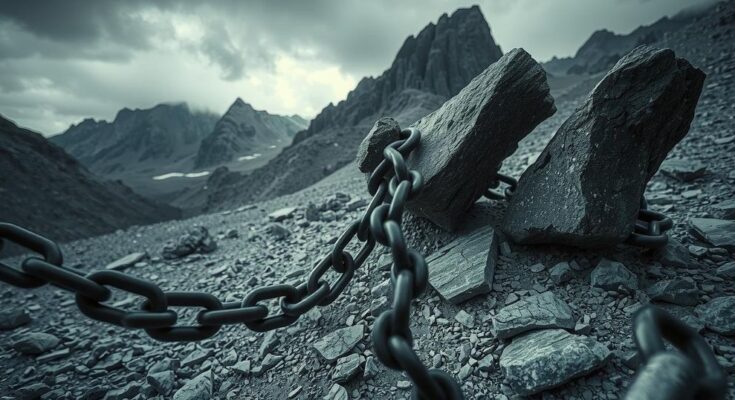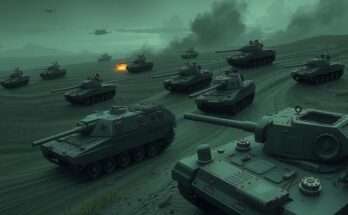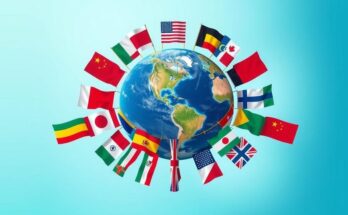Violence escalates in the Democratic Republic of Congo as the M23 rebel group claims control of Goma, inducing a humanitarian crisis amidst military confrontations. The conflict, rooted in resource exploitation and ethnic tensions, has intensified with allegations of Rwandan support for the rebels. Regional leaders are urged to engage in dialogue for a resolution, while humanitarian conditions grow dire due to increased casualties and displacement.
The Democratic Republic of Congo (DR Congo) is witnessing a resurgence of violence as the Alliance Fleuve Congo (AFC) rebel coalition, notably including the M23 group, claims to have taken control of Goma, the largest city in the mineral-rich eastern region. This territorial gain exacerbates the ongoing humanitarian crisis in a region crucial for the extraction of rare minerals. Government forces face challenges as they are supported by regional and UN intervention, yet thousands of residents flee their homes amid escalating conflict.
Recent reports indicate serious casualties, with four South African soldiers having died in combat while serving in the UN peacekeeping mission. Hospitals in Goma are overwhelmed with casualties, including injured children, demonstrating the severe impact of ongoing hostilities. The situation has led to civilian deaths from bombardments and instances of sexual violence and looting, necessitating urgent humanitarian aid.
The crisis is rooted in decades of militia violence in the region, with the M23 group offering a renewed rebellion against the Congolese government, pressing deeper into North Kivu province. The strategic significance of Goma and the presence of valuable coltan reserves elevate the stakes. Experts attribute the conflict to the exploitation and competition for natural resources, with rebel groups profiting immensely from mineral trade.
The role of Rwanda remains contentious, with allegations of military support for M23 and increased tensions along the border. Officials assert that Rwanda’s interests lie in protecting national security in the face of perceived threats from the Congolese government, which has accused Rwanda of complicity in the conflict. Calls for dialogue and resolution have emerged, but both sides are fortified with military readiness.
Efforts from eastern African leaders to address the escalating situation have been proposed, with discussions aiming to find lasting solutions. Previous peace initiatives have fallen short, raising concerns about the effectiveness of future negotiations. Analysts emphasize that any real resolution must prioritize DR Congo’s ability to secure its sovereignty and manage its economic resources effectively. Legitimizing the grievances of affected communities should be central to rebuilding trust and fostering genuine reconciliation.
The conflict in the Democratic Republic of Congo is deeply entrenched, influenced by a historical context of ethnic tensions, armed rebellions, and competition over valuable natural resources. The M23 group, ostensibly representing the interests of Rwandophone communities, has engaged in rebellion against the government, especially since 2022. The eastern region is abundant in minerals like coltan, integral for technology production, but such wealth has often fueled violence rather than peace.
In summary, the recent capture of Goma by rebels highlights a complex interplay of local grievances and external influences, particularly from Rwanda. The humanitarian crisis intensifies as violence escalates, emphasizing the urgent need for international attention and effective resolution strategies. The focus must be on restoring stability and addressing the underlying causes of conflict to prevent further suffering.
Original Source: www.cnn.com




